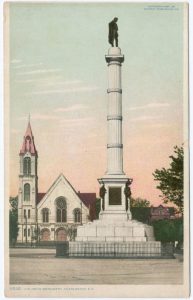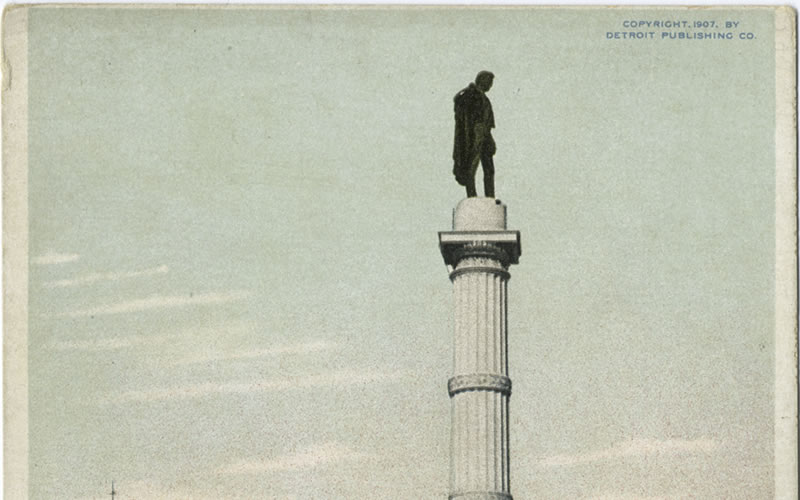Mayor John Tecklenburg of Charleston has the right idea. Instead of tearing down monuments that may offend some, he is quoted as saying in The Post and Courier: “The whole story of our history needs to be told. I intend to be complete and truthful about our history and add context and add to the story instead of taking away.”
 Indeed, South Carolina has a history of correcting monuments to reflect uncomfortable truths, such as adding the name of an out-of-wedlock child to the Statehouse monument of a now deceased U.S. senator.
Indeed, South Carolina has a history of correcting monuments to reflect uncomfortable truths, such as adding the name of an out-of-wedlock child to the Statehouse monument of a now deceased U.S. senator.
Who can argue with Tecklenburg’s idea? It also solves a myriad of other problems.
What do you put in place of the destroyed monuments? A plaque saying the monument was removed because people were offended? Do all slaveholder statues have to be removed? Which can stay and which must go? Do college buildings have to be renamed? In the future, whose statues can be put up? How about highway names? Does the Dixie Highway have to be renamed? What about the bridges and highways named after people subsequently disgraced or who took ideological positions which are disfavored today.
Tecklenburg’s common-sense idea also gives solace to those who rightly would be offended by removal of the monument. Who would want to see a monument to his or her ancestor torn down? What about those who see the good in all people? This solution also gives the answer to those who would promote the removal or defunding of monuments to our founding fathers.
Of course as in most cultural, social and political issues, the debate comes down to whose ox is being gored. I wonder what the reaction would be to including Bill Clinton’s most famous quote on any monuments to him?
In any event, George Santayana would probably be more respectful, as should we all, to those who desire to remember history completely and correctly, rather than forget it. Mayor Tecklenburg and Charleston at large reflect a respectful approach to history, both good and bad, ranging from preservation of historic sites to building new ones such as the International African American Museum. It seems that this Charleston approach to history reflects a considered and refined approach which all people of goodwill should embrace.
After all, what would Charleston be without its history?
Robert S. Carr is a retired U.S. magistrate judge and founder of the Charleston School of Law.
- Have a comment? Send to: editor@charlestoncurrents.com




 We Can Do Better, South Carolina!
We Can Do Better, South Carolina!

























One Comment